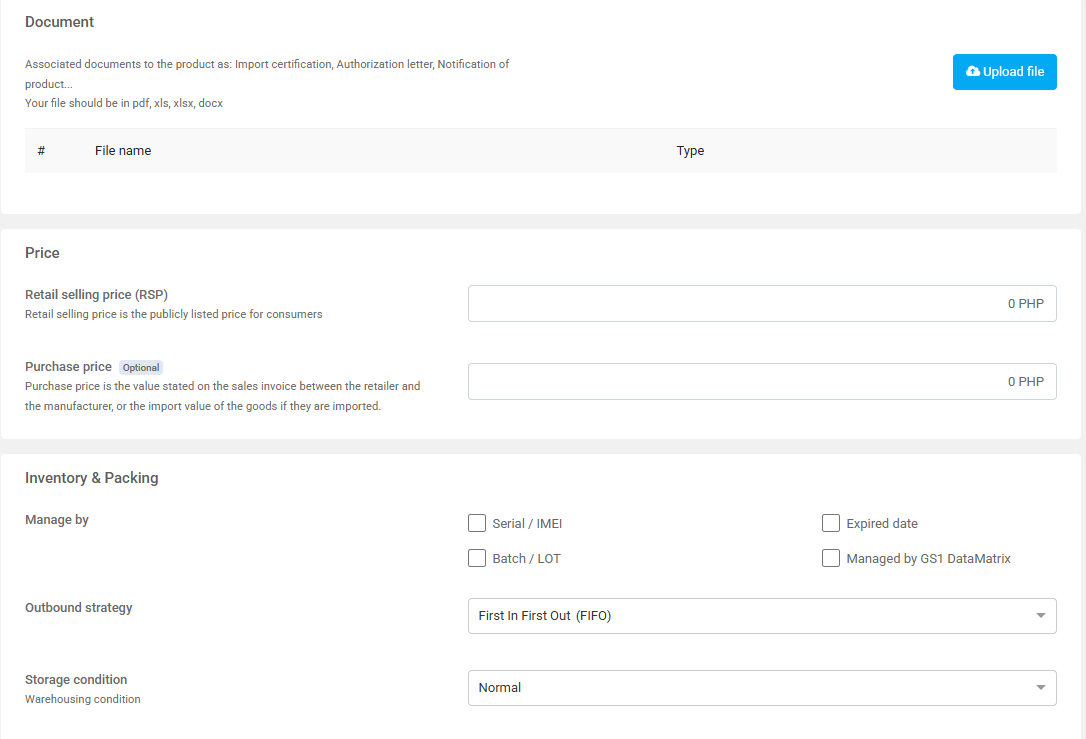We classify the compensation policy according to the type of goods (A, D1, D2, D3) and classify according to two arising times including:
- During the storage period
- Damage or expiry detected during inventory checks requested by the seller.
- Surplus or shortage detected during inventory checks requested by the seller or through internal warehouse audits when an operational issue is discovered.
- Natural deterioration due to the physical/chemical properties of the product (e.g., expiration, discoloration, etc.).
- Due to Boxme’s fault.
- Due to Boxme’s fault.
- Due to system error (inventory change logs recorded incorrectly compared to actual stock).
- During the packaging & transportation process
- The compensation value of goods is based on the declared value, the actual selling price to the buyer (discounted price), or the retail selling price (RSP) — whichever is lower.
- For goods damaged or lost during packaging and transportation, Boxme will handle compensation based on the compensation policy of each courier or based on Boxme’s commitment with the client as stated in the contract.
- Depending on the cooperation contract and the policy regulations at the time, Boxme will determine the compensation value for each order or product.
Note: In cases of compensation for goods lost during storage, if recorded, the final compensation value will be determined monthly, quarterly, or annually based on the agreement in the contract.
The market price refers to the published prices from three reputable retail websites and will be used as the basis for determining value in case of disputes between declared value and the actual invoice value for the consumer.
Products for which Boxme compensates 70% or more of the value are considered the property of Boxme, and Boxme has full rights to use or dispose of the product.
- Compensation Exemption Clause
- Natural wear and tear of goods due to the physical/chemical properties of the product.
- Inventory discrepancies caused by system errors.
- Parcels that have been delivered in accordance with the agreement between the parties and confirmed by the recipient as being intact upon receipt from the courier.
- Parcels packed by Boxme according to regulations; returned parcels that are damaged or lost due to the buyer’s fault or the natural properties of the goods inside.
- Parcels containing prohibited, illegal items, or lacking origin documentation, or those seized/confiscated by authorities.
- Claims submitted past the complaint period (including public holidays):
- More than 15 days from the successful delivery date by the courier.
- More than 20 days from the confirmed successful delivery date by the e-commerce platform (for e-commerce platform orders).
- The seller cannot prove the damage (including but not limited to the following cases):
- Fails to provide complaint information from the buyer; compensation documentation; or equivalent compensation information.
- Fails to provide return/refund order information and refund value in case of e-commerce platform orders.
- Boxme can provide valid packaging evidence (proper packaging and sufficient goods) for the order or prove that the error was caused by fraudulent or deceptive acts by the buyer.
- Packaging camera footage clearly shows the order label or a pre-packed order with the same items.
- Other force majeure reasons under the law (natural disasters, floods, war, etc.).
The seller is responsible for accurately declaring the value of the goods before warehousing on OMS platforms and throughout the service period, and must provide invoices or documentation proving the value of goods when requested.
Product Value Declaration Guide: #
- Manufacturer’s Suggested Retail Price (List Price – MSRP): This is the price suggested by the manufacturer or brand for retailers to use. It is often used to standardize pricing in the market. This information is not recorded in the Boxme system but is supported on the Omisell platform.
- Retail Selling Price (RSP): This is the publicly listed price for consumers when purchasing a product in-store or on e-commerce platforms. This price must be declared on both the Boxme and Omisell systems before the goods are inbounded.
- Discounted Price: This is the actual price the buyer pays after retailer discounts (after applying vouchers or promotions). This value is recorded in the system at the time the order is created.
- Declared Value / Customs Value: This is the declared value used for purchasing insurance or customs clearance. It can be declared either by product or per order and should be input into the Omisell system or when creating an order in the Boxme system. If the seller does not declare this value, the system will default to using the RSP when sending the order to courier partners.
- Purchase Price: This is the value shown on the invoice between the retailer and the manufacturer or the import value for imported goods. This price must be declared in the Boxme and Omisell systems before warehousing.






